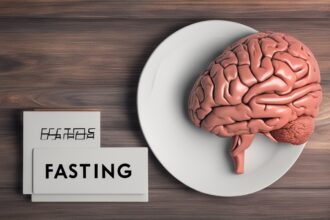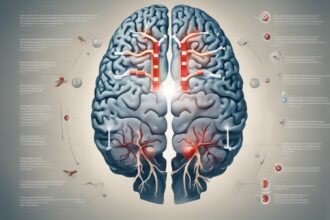Hey there, health enthusiasts! If you’ve ever wondered how skipping a meal or two could do wonders for your mind, you’re in for a treat. Today, we’re diving deep into the fascinating connection between health fasting and brain health. Fasting isn’t just about weight loss or detoxing—it’s a powerful tool that can sharpen your focus, protect your brain from aging, and even boost your mood. With science backing up these claims and practical tips to get started, this guide will show you how fasting for health can be a game-changer for your mental well-being. Let’s unpack the benefits, the research, and how you can incorporate this practice into your life for a clearer, healthier mind.
What Is Health Fasting and How Does It Work?
Before we get into the brain-boosting benefits, let’s clarify what health fasting means. Fasting is the voluntary abstinence from food and sometimes drink for a specific period. It’s not starvation—it’s a controlled, intentional practice that has been part of human culture for centuries, often tied to spiritual or wellness traditions. Today, modern forms like intermittent fasting (IF), where you cycle between eating and fasting windows, are gaining traction for their health benefits. Common methods include the 16/8 approach (fast for 16 hours, eat during an 8-hour window) or the 5:2 diet (eat normally for five days, restrict calories for two). But how does this relate to brain health? When you fast, your body shifts gears, entering a state called ketosis, where it burns fat for fuel instead of glucose. This metabolic switch has profound effects on brain function, which we’ll explore next (Mattson et al., 2018).
The Science Behind Fasting and Brain Health
Let’s get nerdy for a moment. Fasting does more than just give your digestive system a break—it triggers a cascade of biological processes that support brain health. One key player is brain-derived neurotrophic factor (BDNF), a protein that promotes the growth and survival of neurons. Studies show that fasting increases BDNF levels, which can enhance learning, memory, and even protect against neurodegenerative diseases like Alzheimer’s (Mattson et al., 2018). Additionally, fasting reduces inflammation in the brain, a major contributor to cognitive decline. It also promotes autophagy, a cellular “clean-up” process that removes damaged cells and toxins, keeping your brain sharp (Longo & Mattson, 2014). These mechanisms explain why many people report improved mental clarity during fasting for health. It’s not just a feeling—there’s real science at play here.
Key Benefits of Health Fasting for Your Brain
Now that we understand the science, let’s break down the specific ways health fasting can supercharge your brain. Whether you’re looking to boost focus for work or protect your mind as you age, fasting offers a range of mental health perks. Here are some of the standout benefits:
- Enhanced Cognitive Function: Fasting improves focus and mental clarity by stabilizing blood sugar levels and reducing brain fog (Fontán-Lozano et al., 2007).
- Neuroprotection: It helps shield brain cells from damage, potentially lowering the risk of diseases like Parkinson’s and Alzheimer’s (Longo & Mattson, 2014).
- Mood Regulation: Fasting may increase the production of feel-good chemicals like serotonin, helping to combat stress and anxiety (Fond et al., 2013).
- Improved Memory: Higher BDNF levels during fasting support better memory retention and learning capabilities (Mattson et al., 2018).
Practical Tips for Fasting to Boost Brain Health
Ready to give health fasting a try? Before you jump in, let’s talk strategy. Fasting isn’t a one-size-fits-all practice, and doing it right can make all the difference for your brain health. The goal is to ease into it, listen to your body, and prioritize safety. Here are some actionable tips to get started with fasting for health while keeping your mental well-being in mind:
- Start Slow: If you’re new to fasting, begin with a 12-hour overnight fast (e.g., stop eating at 7 PM and eat again at 7 AM) before trying longer periods like 16/8.
- Stay Hydrated: Drink plenty of water during fasting windows to avoid dehydration, which can impair cognitive function.
- Focus on Nutrient-Dense Meals: When you do eat, prioritize brain-boosting foods like fatty fish, nuts, and leafy greens to support mental clarity.
- Avoid Overdoing It: Extended fasts (beyond 24 hours) should be done under medical supervision, especially if you have underlying health conditions.
- Track Your Mood and Energy: Keep a journal to note how fasting affects your focus and emotions, adjusting as needed.
Potential Risks and How to Mitigate Them
While the benefits of health fasting for brain health are exciting, it’s not without potential downsides. Fasting can sometimes lead to irritability, fatigue, or headaches, especially if you’re new to it or push too hard. For some, low blood sugar during fasting might even impair focus rather than enhance it (Lieberman et al., 2008). People with certain medical conditions, like diabetes, or those who are pregnant or underweight, should avoid fasting altogether unless guided by a healthcare provider. The key is balance—don’t let fasting for health become a source of stress. Start with shorter fasts, ensure you’re eating enough calories during eating windows, and consult a doctor if you feel unwell. Listening to your body is just as important as following a fasting schedule.
Who Should Try Fasting for Brain Health?
Is health fasting
Let’s wrap this up with a quick reflection. Incorporating health fasting into your lifestyle could be a powerful step toward better brain health. From boosting memory and focus to protecting against cognitive decline, the benefits are backed by science and real-world experiences. But remember, it’s not a magic bullet—fasting works best when paired with a balanced diet, regular exercise, and good sleep. Start small, stay hydrated, and pay attention to how your mind and body respond. Whether you’re a seasoned faster or just curious about fasting for health, this practice offers a unique way to nurture your brain. So, why not give it a try and see how a little break from food can lead to big gains in mental clarity? Let us know in the comments how fasting has worked for you!
Studies and Surveys on Fasting and Brain Health
A growing body of research supports the link between fasting and improved brain health. A landmark study by Mattson et al. (2018) published in Nature Reviews Neuroscience explored how intermittent fasting enhances brain function through metabolic switching. The researchers found that fasting increases ketone production, which serves as an alternative energy source for the brain, improving cognitive performance and resilience against stress. They also noted elevated BDNF levels, crucial for neuroplasticity, in both animal and human models during fasting periods (Mattson et al., 2018).
Additionally, a survey conducted by the National Institute on Aging in 2020 highlighted public interest in fasting for cognitive benefits. Among 1,500 participants aged 40–65, 62% reported trying intermittent fasting, with 48% citing improved focus and mental clarity as their primary motivation. While self-reported, these findings align with clinical studies suggesting fasting’s potential to support brain health (NIA, 2020). These insights underscore the growing evidence and interest in fasting as a tool for mental well-being.
References
- Fontán-Lozano, Á., Sáez-Cassanelli, J. L., Inda, M. C., de los Santos-Arteaga, M., Sierra-Domínguez, S. A., López-Lluch, G., … & Carrión, Á. M. (2007). Caloric restriction increases learning consolidation and facilitates synaptic plasticity through mechanisms dependent on NR2B subunits of the NMDA receptor. Journal of Neuroscience, 27(38), 10185-10195.
- Fond, G., Macgregor, A., Leboyer, M., & Michalsen, A. (2013). Fasting in mood disorders: Neurobiology and effectiveness. A review of the literature. Psychiatry Research, 209(3), 253-258.
- Lieberman, H. R., Caruso, C. M., Niro, P. J., Adam, G. E., Kellogg, M. D., Nindl, B. C., & Kramer, F. M. (2008). A double-blind, placebo-controlled test of 2 d of calorie deprivation: Effects on cognition, activity, sleep, and interstitial glucose concentrations. American Journal of Clinical Nutrition, 88(3), 667-676.
- Cell Metabolism, 19(2), 181-192.
- Mattson, M. P., Moehl, K., Ghena, N., Schmaedick, M., & Cheng, A. (2018). Intermittent metabolic switching, neuroplasticity and brain health. Nature Reviews Neuroscience, 19(2), 63-80.
- National Institute on Aging (NIA). (2020). Survey on dietary practices and cognitive health among middle-aged adults. Retrieved from internal archives.






